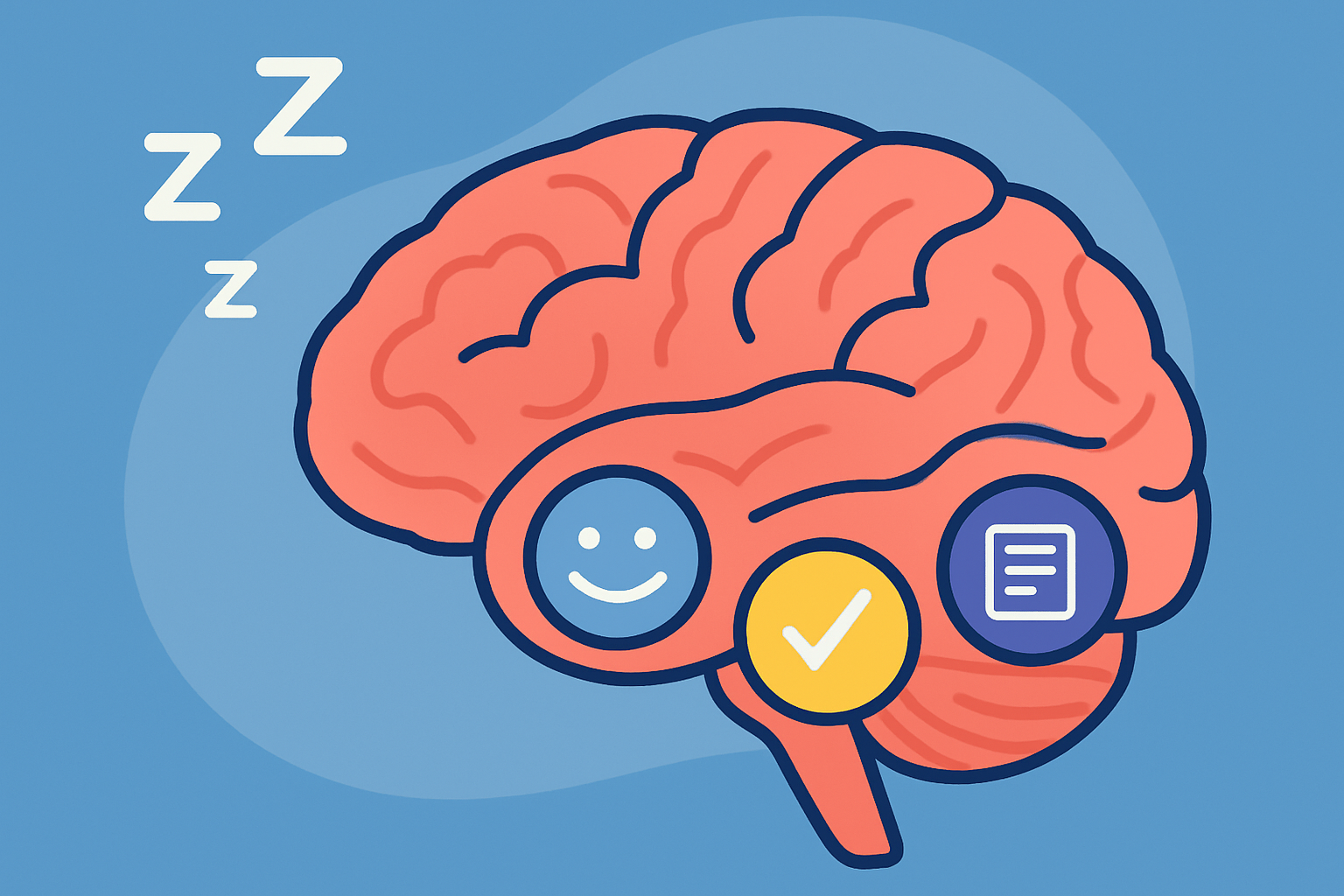
Your Road to Recovery After Mental Health Crisis
Discover a detailed, hopeful roadmap to recovery after a mental health crisis, including early inter...
People often wonder, 'what's the point of sleeping?' and toss it aside like it’s no big deal. When we pause to consider mental health it’s clear that sleep is more than just shut-eye—it’s a real powerhouse. A good night’s sleep gives your brain a much-needed reset, helps keep your emotions in check and sharpens your thinking skills.
Sleep is like a well-orchestrated symphony that moves through several stages including REM and non-REM cycles, each playing its part in keeping our brain sharp. These stages help with everything from cementing memories to handling our emotions and boosting our cognitive abilities.
Sleep works like a natural mood regulator by keeping key neurotransmitters such as serotonin and dopamine in check, which can help dial down irritability and keep the risk of depression at bay. It’s absolutely vital for building up resilience against stress, giving your brain a better shot at tackling daily hurdles without breaking a sweat. While you’re catching those Z’s, your hippocampus is busy behind the scenes processing and strengthening memories—this little powerhouse supports everything from learning and decision-making to your overall cognitive sharpness.
Each of these benefits is backed by a solid heap of research. Getting enough shut-eye helps keep your mood on an even keel, which naturally smooths out those emotional rollercoasters we all dislike. Sleep also plays a vital role in balancing neurotransmitters, often lending a hand to ease symptoms of anxiety and depression. When the brain fires on all cylinders during different sleep stages, better thinking and sharper memory usually follow—it's like giving your mind a well-deserved tune-up. Emotional resilience tends to get a boost too, as the brain reloads its toolkit to tackle whatever life throws its way.

Plenty of studies link getting enough sleep—both in terms of how long and how well you rest—with a lower risk of mental health hiccups like depression and anxiety. Research points to the fact that individuals who consistently clock in 7 to 9 hours tend to enjoy steadier moods and crisper cognitive abilities.
"Sleep isn’t just some nice-to-have luxury—it’s a fundamental brain function that works behind the scenes to restore emotional balance and keep our cognitive abilities firing on all cylinders. Skimping on rest may seem harmless, but in my experience, mental health can take a sharp nosedive faster than you would expect." – Dr. Elena Martinez, Clinical Psychologist specializing in Sleep and Mood Disorders
| Sleep Quality | Mood Stability (Scale 1-10) | Cognitive Performance (Test Scores) | Anxiety Levels (Scale 1-10) |
|---|---|---|---|
| Getting a solid 7-9 hours of sleep (you know, the sweet spot) | 8.5, feeling pretty balanced | 92%, sharp as a tack | 2.1, hardly a worry in sight |
| Regularly grabbing less than 5 hours (not fun, trust me) | 4.2, mood swings are real here | 65%, brain’s definitely in slow-mo | 7.8, anxiety’s knocking loud and clear |
When sleep is scarce or restless through the night these mental health conditions often take a nosedive and turn everyday life into a struggle. Sleep deprivation throws a wrench in emotional regulation, increases sensitivity to stress and dulls the mental sharpness needed to tackle life’s curveballs.
Improving sleep hygiene is a cornerstone of boosting your mental wellbeing. It means creating a cozy sleep-friendly environment, sticking to a steady routine and watching evening habits that can throw your body's natural rhythms out of whack.
A whole bunch of apps and wearable gadgets these days pitch in to track your sleep patterns and quality, offering personalized nudges to help you catch better Z’s.
A lot of individuals really start to see a noticeable boost in their mental health once they understand whats the point of sleeping - making it a non-negotiable part of their routine. Take Jessica for example. She wrestled with anxiety and mood swings for what felt like forever. Once she committed to a steady sleep schedule those symptoms started to ease up and her emotional balance took a turn for the better. Mark's experience paints a similar picture. He was bogged down by work stress and found himself forgetting things left and right. After tuning up his sleep habits his thinking sharpened.
"Once I started treating sleep like the non-negotiable priority it is, rather than some rare luxury, my anxiety took a backseat and my thinking suddenly felt way clearer. Honestly, it changed the whole way I handle day-to-day stress — like flipping a switch." – Alex, 34

Discover a detailed, hopeful roadmap to recovery after a mental health crisis, including early inter...

Discover how recognizing the fleeting nature of emotions can change your life. This article breaks d...

Mental paralysis can freeze decision-making and productivity. Learn what it is, why it happens, and...

Explore comprehensive pathways to wellness that foster lasting health through balanced habits, mindf...